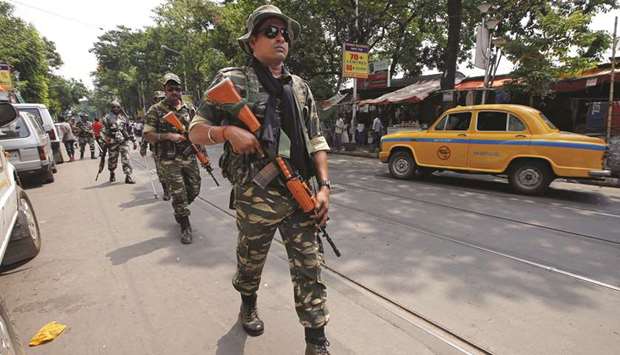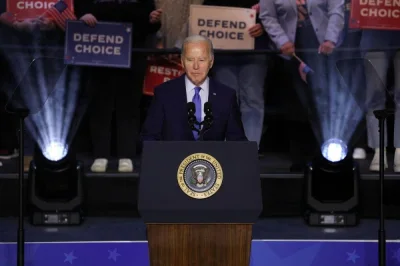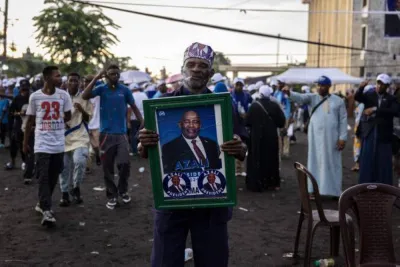Soldiers patrolled the centre of West Bengal capital Kolkata yesterday a day after rival political supporters clashed during campaigning for the country’s general election.
With the third highest number of parliamentary seats among Indian states, West Bengal has emerged as a battleground where Prime Minister Narendra Modi’s Bharatiya Janata Party (BJP) is attempting to make inroads to offset likely losses elsewhere and retain power.
Modi’s party is facing stiff opposition from West Bengal’s ruling Trinamool Congress party.
More than 100 BJP supporters were detained for violence in West Bengal on Tuesday, police said.
The state police said no Trinamool member had been detained, but the Election Commission of India (ECI) said it planned to investigate allegations of vandalism by party supporters.
A bust of renowned Bengal reformer, Ishwar Chandra Vidyasagar, was destroyed and a college named after him ransacked in the troubles.
Teachers and students of Vidyasagar College wearing black badges staged a day-long protest yesterday, demanding an impartial investigation into the incident.
“I could not recognise the office when I stepped in today,” Gautam Kundu, the college principal, said.
“Broken shards of glass lay all over and a statue of Vidyasagar was missing from the glass case.
“They (the teachers) were cowering in fear inside the classrooms when the attack took place. We are shocked,” he said.
Security was stepped up outside the college as well as at Calcutta University where students demonstrated with placards reading “Go Back Narendra Modi”, “Go Back BJP”.
In a response to the violence, the Election Commission suspended campaigning by political parties for the last phase of the staggered election a day before the deadline.
Voting is to be held in 10 constituencies on May 19 in the state, which sends 42 lawmakers to the Lok Sabha, the lower house of parliament.
India’s election started on April 11 and ends on May 19.
The results will be announced on May 23.
“This is probably the first time that ECI has invoked Article 324 in this manner but it may not be last,” an Election Commission official said at a press conference yesterday.
The clashes broke out as BJP president Amit Shah led a campaign procession through Kolkata, and rival Trinamool supporters threw stones and water bottles at each other.
“The reason behind the violence is Trinamool Congress, not BJP,” Shah told reporters yesterday.
The Trinamool Congress, led by firebrand Chief Minister Mamata Banerjee blamed the violence on the BJP.
The authorities said soldiers were deployed in the city to ensure there was no further violence.
“Has Bengal acquired a government of gangsters? The attack on Amit Shah’s peaceful rally by TMC is deplorable,” Finance Minister Arun Jaitley said on Twitter.
Modi condemned what he called “TMC goons” for launching the street battles, in a television interview.
Banerjee hit back by accusing Shah acting like a “god” who does not allow protests.
She led a rally of several thousand supporters through the city late yesterday.
The communist party held its own rally.
West Bengal has a history of election-related violence, initially between the communists who ran the state for nearly three decades and the main opposition Congress Party.
But now the BJP and the Trinamool Congress have emerged as frontrunners, clashes are erupting frequently between their supporters.
“Elections matter in Bengal much more than most other states because (the) party is the only form through which people tend to organise themselves,” said Dwaipayan Bhattacharyya, a political science professor at New Delhi’s Jawaharlal Nehru University.

Central Reserve Police Force (CRPF) personnel conduct route march in a street ahead of the seventh and last phase of general election, in Kolkata, yesterday.


